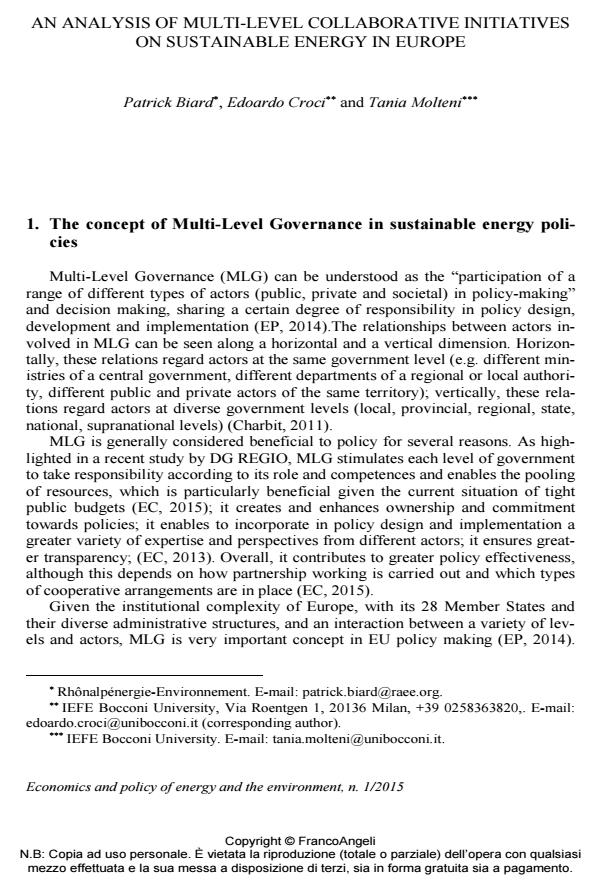An analysis of multi-level collaborative initiatives on sustainable energy in Europe
Journal title ECONOMICS AND POLICY OF ENERGY AND THE ENVIRONMENT
Author/s Patrick Biard, Edoardo Croci, Tania Molteni
Publishing Year 2016 Issue 2015/1
Language English Pages 22 P. 89-110 File size 260 KB
DOI 10.3280/EFE2015-001007
DOI is like a bar code for intellectual property: to have more infomation
click here
Below, you can see the article first page
If you want to buy this article in PDF format, you can do it, following the instructions to buy download credits

FrancoAngeli is member of Publishers International Linking Association, Inc (PILA), a not-for-profit association which run the CrossRef service enabling links to and from online scholarly content.
A polycentric, multi-scale, climate governance framework is developing in parallel to the negotiations for a credible global agreement. Subnational governments are increasingly engaged to contribute to climate mitigation. Local climate action is particularly evident in Europe, where regional and municipal institutions are often designing, implementing and monitoring sustainable energy policies, plans and actions in a cooperative way. Strengths and weaknesses of multi-level cooperation initiatives on sustainable energy in Europe are assessed thanks to data collected through the European project Coopenergy. Political commitment emerges as a major driver for successful cooperation, while lack of funding is recognized as a major barrier.
Keywords: Multi-level governance, regional and local authorities, sustainable energy, Europe
Jel codes: H7, Q4, R5
Patrick Biard, Edoardo Croci, Tania Molteni, An analysis of multi-level collaborative initiatives on sustainable energy in Europe in "ECONOMICS AND POLICY OF ENERGY AND THE ENVIRONMENT" 1/2015, pp 89-110, DOI: 10.3280/EFE2015-001007